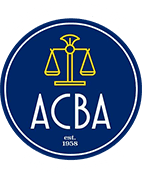
Chapter 13 Bankruptcy Lawyer in Denver
Helping Clients in Jefferson County, Douglas County, Arapahoe County, and Adams County
Chapter 13 bankruptcy is different from a Chapter 7 bankruptcy. A Chapter 13 bankruptcy is for those debtors who do not qualify for a Chapter 7 due to the “means test,” or for those debtors who do qualify for a Chapter 7 but have chosen to file for Chapter 13. This is usually because of a need to save a home from foreclosure or to prevent the Trustee from taking and liquidating some assets that the debtor wants to keep and would lose in a Chapter 7.
Repayment Period
While a Chapter 7 bankruptcy is referred to as a “liquidation” bankruptcy, Chapter 13 bankruptcies are referred to as “repayment” bankruptcies. This is because debtors are required in a Chapter 13 bankruptcy to repay a portion of their debts over a period of either 3 years or 5 years. Whatever unsecured debt is left at the end of the repayment period is discharged with some exceptions. We can help you determine which repayment period for which you qualify.
Automatic Stay/Meeting of Creditors
The automatic stay provisions for a chapter 13 are almost identical to those for a Chapter 7 with one big exception. The automatic stay protects the debtor from creditor collection activities, but what about if there is a codebtor? The automatic stay only applies to debtors in a Chapter 7, but in a Chapter 13 it also protects codebtors. This can be a big consideration for debtors filing for bankruptcy that have relatives as codebtors.
Just like a Chapter 7, a debtor in a Chapter 13 must also attend a 341 Meeting of Creditors with a Trustee.
The creditor meetings are nearly identical in nature.
We will always attend the 341 Meeting of Creditors with you and prepare you before your meeting so you know what to expect.
Repayment Plan
While the time-consuming process of either a Chapter 7 or Chapter 13 is the accurate preparation of the bankruptcy petition, the most complicated process is calculating the repayment plan for a Chapter 13. The repayment plan must meet several factors before the Trustee and the Court will agree to it and the calculations can be extremely difficult to understand. Certain debts must be paid in full while others can be paid back pennies on the dollar. Debtors want the monthly repayments to be as low as possible, while the Trustee tries to make it as high as possible. Debtors need an attorney that understands how to keep the payments low and how to negotiate with the Trustee. We are experienced with drafting Chapter 13 repayment plans and know the Trustees. We can even give you a good idea of what your repayments will look like before you even file.

Our Testimonials
Hear What Our Clients Are Saying
-
"He fully investigated points that needed clarification."He is very caring and makes sure you understand the complications that are involved in your case.- Laura S.
-
"Very understanding law firm also and a lawyer that cares about your case!"If it wasn’t for Cory, I don’t think my case would’ve gone good like it did.- Dania C.
-
"Overall this firm is great, they care about their clients!"Stacy was wonderful very helpful and informative. She made the whole process easy and smooth.- Shirley S.
-
"Corey and his staff especially Stacy were exceptional."They fully represent you as a client and fight for what is right and in the best interest of the children.- Frank E.
-
"Curtis Law Firm is better than 5 stars."Small enough to care and knowledgeable to know what they are doing.- Mary J.
-
"He very patiently answered all our questions (and we had a lot of them)."It was wonderful to be reassured, His office staff was courteous, and Mr. Curtis was knowledgeable, professional, but was very personable.- Shirley H.
-
"He is very knowledgeable, professional, and likeable."I have referred friends and family to him because I trust he will provide them with excellent legal representation.- Amy G.
-
"Nice smart compassionate lawyer."Very smart. Very resourceful. Addresses all options.- Jason C.

Why Choose Curtis Law Firm?
-
BiLingual Communication
We have staff members who speak Spanish.
-
Appointment FlexibilityWe make ourselves available to help accommodate your schedule.
-
Affordable Legal RepresentationWe make good legal help attainable with small retainers, payment plan options, and financing if needed.
-
Providing SupportFamily changes can be emotionally hard. We help make it easier.




